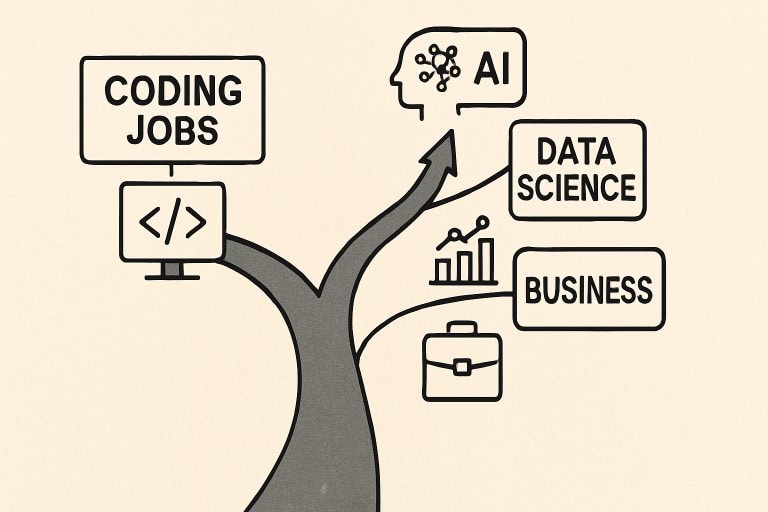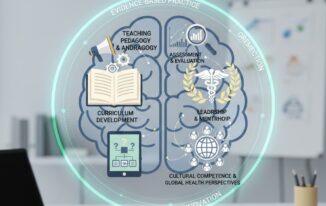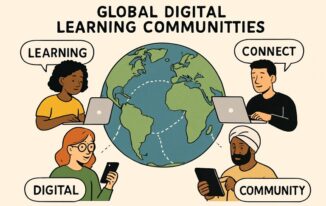Table of Contents
- Introduction
- The Impact of AI on Entry-Level Positions
- Declining Job Postings in Core Tech Roles
- Evolving Skill Requirements
- The Role of Education in Preparing Students
- Strategies for Adapting to the Changing Landscape
- Conclusion
Introduction
The technology sector is experiencing swift and profound changes, fundamentally altering the outlook for those pursuing a future in computer science. Automation driven by artificial intelligence (AI) and an increased demand for interdisciplinary skills are reshaping the job market, posing new challenges for recent graduates and professionals. Getting early insight into these shifts is key for individuals who want to thrive in a landscape where requirements are constantly changing. Many are seeking flexible educational paths, such as computer science programs at Lee College, to build relevant, market-driven skill sets.
These changes affect the number of available roles, particularly entry-level opportunities, and the types of capabilities that employers seek. Understanding where traditional roles are contracting and which new skill combinations are emerging as essential can help students and early-career professionals position themselves for long-term success.
Adjusting university curricula and employer expectations further underscores the need for adaptability. Computer science is no longer solely about coding — it now intersects with business, creativity, and problem-solving as core components of career readiness.
Proactive career planning, continuous learning, and a willingness to build expertise in emerging tools have never been more critical in the shifting digital economy. For a deeper perspective on broader trends and tech employment data, consider visiting the recent analysis published by The Wall Street Journal.
The Impact of AI on Entry-Level Positions
Artificial intelligence has shifted the landscape for those seeking to launch their careers in tech. Tasks once handled by junior programmers, such as routine code writing and basic software debugging, are now frequently managed by AI tools. As businesses prioritize efficiency, the need for large teams of entry-level coders has decreased. While this streamlining benefits organizations, it narrows the avenues for new graduates to gain practical experience and establish their careers.
The consequences of this shift are significant, as recent computer science graduates now face steeper competition for a shrinking pool of traditional entry-level jobs. According to industry analysis, many firms report that automated systems can handle large portions of the work previously assigned to their least experienced team members. This underscores the urgency for job seekers to differentiate themselves through skills that automation cannot easily replace.
Declining Job Postings in Core Tech Roles
The contraction in available tech jobs has been particularly evident since 2019. Reports indicate a dramatic decline—nearly 50%—in job postings for many core technical roles. Junior programming and IT support positions have been hit the hardest, often outnumbered four-to-one by openings for more specialized or senior roles. This ongoing trend calls for reconsidering how to enter and advance within the technology workforce.
For early-career professionals, standing out requires more than traditional academic preparation. Employers now expect new hires to arrive with domain knowledge and a demonstrated ability to understand and adapt to rapidly changing technologies and workflows.

Evolving Skill Requirements
The industry’s needs have outgrown pure programming ability. Today, employers are eager for candidates with a broader toolkit — not only in coding, but also in data science, project management, and the strategic use of AI-enabled solutions. These competencies allow employees to add value by solving complex problems, collaborating across departments, and harnessing the latest digital tools. A cross-disciplinary mindset is becoming a new standard for the next generation of tech talent.
Mastery of essential “soft skills” such as communication and teamwork has become just as important as technical expertise. Companies increasingly note that their most valuable employees can navigate the technical and interpersonal challenges of the modern workplace. The New York Times highlights the rise in demand for computer science graduates capable of translating raw technical ability into tangible business solutions and collaborative projects.
The Role of Education in Preparing Students
Educational institutions are evolving their offerings beyond classical curricula to meet new industry standards. Many universities and colleges are now developing cross-disciplinary majors, combining computer science with entrepreneurship, the humanities, or social sciences. These programs are designed to produce graduates who can innovate at the intersection of technology and other critical fields.
Furthermore, adopting experiential and project-based learning helps students build real-world skills. Internships, hackathons, and collaborative research projects are increasingly standard components of academic programs, providing valuable exposure to tasks and teamwork required in professional settings.
Strategies for Adapting to the Changing Landscape
1. Develop AI Literacy
Future-proofing your career begins with a working understanding of AI principles and practical skills for AI-powered tools. Whether through formal coursework, online certifications, or open-source contributions, familiarity with automation technologies will set you apart in applications and interviews.
2. Enhance Soft Skills
While technical knowledge is critical, soft skills like communication, leadership, and creative problem-solving remain in high demand. Consider joining clubs, professional organizations, or volunteering for roles that improve your ability to work effectively in teams and influence group outcomes.
3. Pursue Continuous Learning
Tech professionals must embrace lifelong learning. Advancements in digital tools, programming languages, and frameworks are constant. Regularly participate in continuing education through online courses, industry workshops, or bootcamps to ensure your skills stay current.
4. Seek Interdisciplinary Knowledge
Expand your focus beyond core computer science to include business acumen, design thinking, or industry-specific expertise. This multidisciplinary approach will make you more adaptable and valuable across various professional contexts.
Conclusion
The path to a rewarding career in computer science is changing, shaped by AI innovations and evolving workplace demands. By embracing flexibility, nurturing a broad skillset, and committing to continuous personal development, you can secure a future in this dynamic industry and adapt to whatever comes next.



